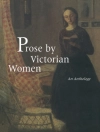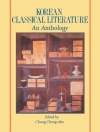‘Clear the lulla!’ was the general cry on a bright December afternoon, when all the boys and girls of Harmony Village were out enjoying the first good snow of the season. Up and down three long coasts they went as fast as legs and sleds could carry them. One smooth path led into the meadow, and here the little folk congregated; one swept across the pond, where skaters were darting about like water-bugs; and the third, from the very top of the steep hill, ended abruptly at a rail fence on the high bank above the road. There was a group of lads and lasses sitting or leaning on this fence to rest after an exciting race, and, as they reposed, they amused themselves with criticising their mates, still absorbed in this most delightful of out-door sports.
‘Here comes Frank Minot, looking as solemn as a judge, ‘ cried one, as a tall fellow of sixteen spun by, with a set look about the mouth and a keen sparkle of the eyes, fixed on the distant goal with a do-or-die expression.
‘Here’s Molly Loo
And little Boo!’
sang out another; and down came a girl with flying hair, carrying a small boy behind her, so fat that his short legs stuck out from the sides, and his round face looked over her shoulder like a full moon.
‘There’s Gus Burton; doesn’t he go it?’ and such a very long boy whizzed by, that it looked almost as if his heels were at the top of the hill when his head was at the bottom!
‘Hurrah for Ed Devlin!’ and a general shout greeted a sweet-faced lad, with a laugh on his lips, a fine color on his brown cheek, and a gay word for every girl he passed.
Об авторе
Louisa May Alcott was born in Germantown, Pennsylvania on November 29, 1832. She and her three sisters, Anna, Elizabeth and May were educated by their father, philosopher/ teacher, Bronson Alcott and raised on the practical Christianity of their mother, Abigail May.
Louisa spent her childhood in Boston and in Concord, Massachusetts, where her days were enlightened by visits to Ralph Waldo Emerson’s library, excursions into nature with Henry David Thoreau and theatricals in the barn at Hillside (now Hawthorne’s ‘Wayside’).
Like her character, Jo March in Little Women, young Louisa was a tomboy: ‘No boy could be my friend till I had beaten him in a race, ‘ she claimed, ‘ and no girl if she refused to climb trees, leap fences….’
For Louisa, writing was an early passion. She had a rich imagination and often her stories became melodramas that she and her sisters would act out for friends. Louisa preferred to play the ‘lurid’ parts in these plays, ‘the villains, ghosts, bandits, and disdainful queens.’
At age 15, troubled by the poverty that plagued her family, she vowed: ‘I will do something by and by. Don’t care what, teach, sew, act, write, anything to help the family; and I’ll be rich and famous and happy before I die, see if I won’t!’
Confronting a society that offered little opportunity to women seeking employment, Louisa determined ‘…I will make a battering-ram of my head and make my way through this rough and tumble world.’ Whether as a teacher, seamstress, governess, or household servant, for many years Louisa did any work she could find.
Louisa’s career as an author began with poetry and short stories that appeared in popular magazines. In 1854, when she was 22, her first book Flower Fables was published. A milestone along her literary path was Hospital Sketches (1863) based on the letters she had written home from her post as a nurse in Washington, DC as a nurse during the Civil War.
When Louisa was 35 years old, her publisher Thomas Niles in Boston asked her to write ‘a book for girls.’ Little Women was written at Orchard House from May to July 1868. The novel is based on Louisa and her sisters’ coming of age and is set in Civil War New England. Jo March was the first American juvenile heroine to act from her own individuality; a living, breathing person rather than the idealized stereotype then prevalent in children’s fiction.
In all, Louisa published over 30 books and collections of stories. She died on March 6, 1888, only two days after












